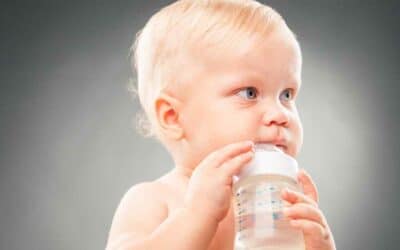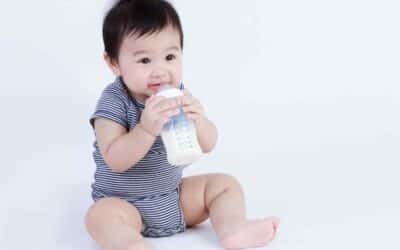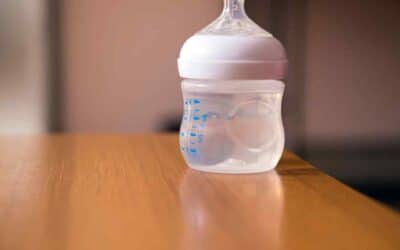As a parent, one of your top priorities is ensuring that your baby is healthy and safe. One important aspect of this is providing your little one with clean and fresh water to drink. However, keeping baby water fresh and safe can be a bit challenging, especially if you’re not familiar with the proper storage methods.
In this blog post, we will provide you with essential tips to help you store your baby’s water properly and ensure that it remains clean and safe for your little one to drink. We will discuss different storage options, common mistakes to avoid, and other tips that will help you keep your baby safe and healthy.
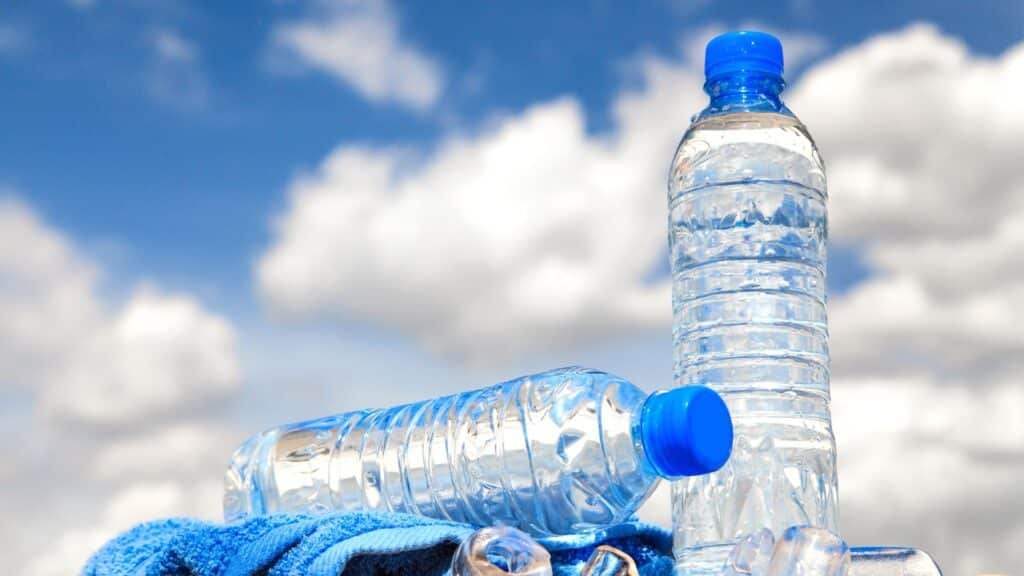
Why Proper Storage is Important
Proper storage plays a crucial role in maintaining the safety, quality, and freshness of baby water. Baby water, which is purified and often contains low levels of minerals, is specifically designed to meet the sensitive needs of infants. As babies have underdeveloped immune systems compared to adults, it is essential to prevent the contamination of baby water to ensure their health and well-being.
The Following Reasons Highlight the Importance of Proper Storage for Baby Water:
Protection from Bacterial Growth:
One of the primary concerns with improperly stored water is the growth of bacteria, such as E. coli, Salmonella, and Campylobacter. These bacteria can cause severe illness in infants, leading to diarrhea, vomiting, and even life-threatening complications. Ensuring the water is stored in a clean, sealed container and kept at an appropriate temperature can help prevent bacterial growth.
Prevention of Chemical Contamination:
Proper storage also helps protect baby water from chemical contamination from the environment. Exposure to chemicals, such as lead, pesticides, and industrial pollutants, can negatively impact a child’s neurological development and overall health. Using BPA-free, food-grade containers for storage can minimize the risk of chemical contamination.
Maintaining Freshness and Taste:
Storing baby water appropriately helps maintain its freshness and taste, ensuring your baby consumes quality water. Exposure to sunlight, high temperatures, and contaminants can alter the taste and odor of the water, making it unpalatable for the baby.
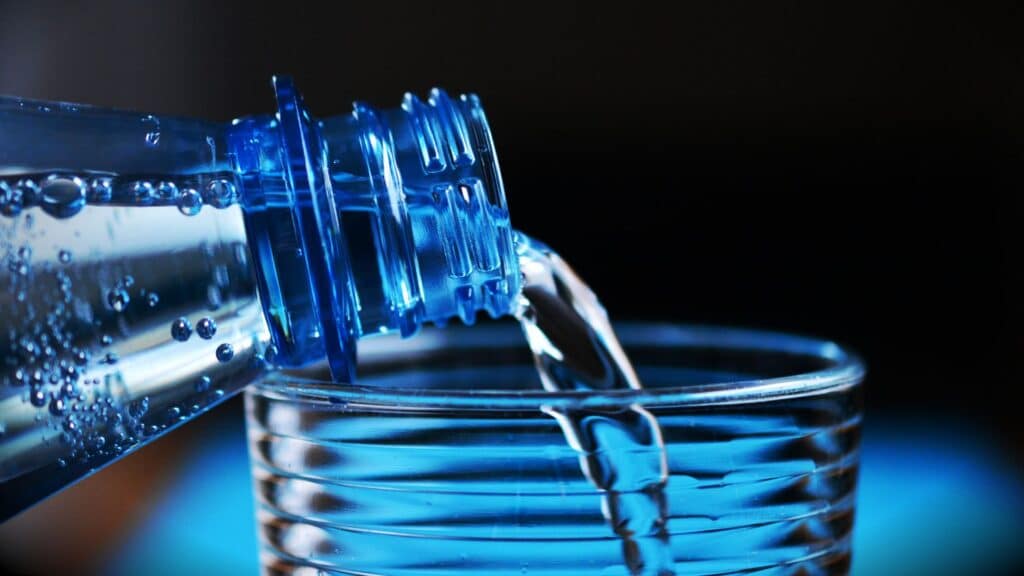
Potential Contaminants That Can Develop in Improperly Stored Water:
Microbial Contaminants:
When water is not stored correctly, microbes such as bacteria, viruses, and protozoa can multiply, posing a health risk to infants. Examples include E. coli, Salmonella, Giardia, and Cryptosporidium, which can cause gastrointestinal illnesses.
Algae and Mold:
Inadequate storage conditions, such as exposure to sunlight and high temperatures, can promote the growth of algae and mold in the water. These organisms can negatively affect the taste and smell of the water and may cause allergic reactions in sensitive individuals.
Chemical Pollutants:
Storing baby water near household chemicals or using low-quality containers can lead to contamination from substances such as lead, pesticides, and volatile organic compounds (VOCs). These chemicals can have detrimental effects on a baby’s health and development.
Proper storage of baby water is essential to ensure its safety, quality, and freshness. By taking the necessary precautions, parents can protect their infants from potential contaminants and provide them with the best possible nutritional start in life.
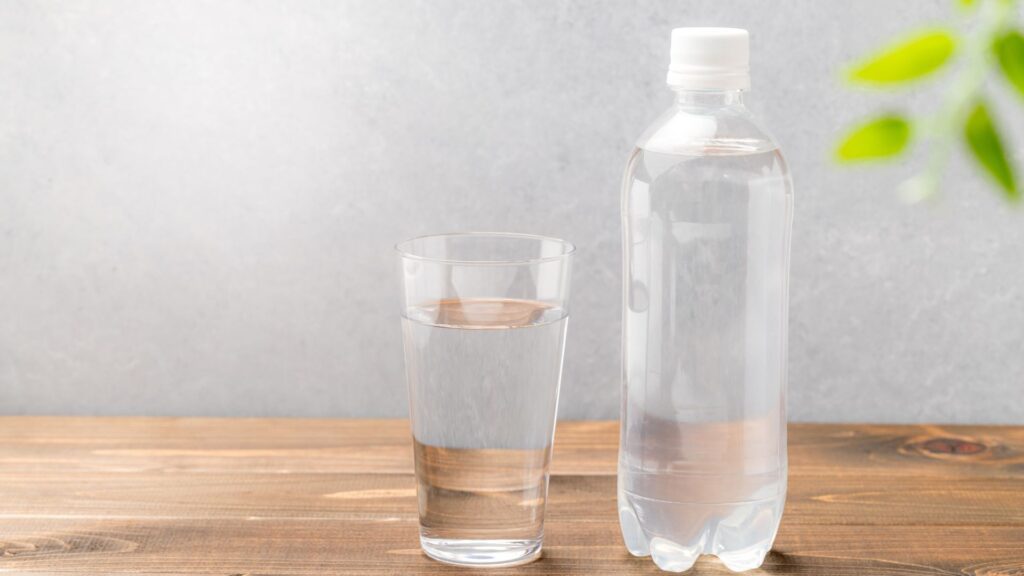
How to Store Baby Water
Baby water, also known as nursery water, is specially treated water suitable for infants, particularly for mixing with formula or preparing baby food. It is essential to store baby water properly to ensure its safety and quality. Here are some practical tips on how to store baby water:
Practical Tips for Storing Baby Water:
Use a clean, airtight container: It’s crucial to store baby water in a clean, airtight container to prevent contamination from bacteria or other harmful substances. The container should be made of food-grade materials, such as BPA-free plastic or glass, and must be thoroughly washed and dried before use.
Keep it in a cool, dark place: To maintain the quality of baby water, store it in a cool, dark place, such as a pantry or a cupboard. Exposure to sunlight or high temperatures can encourage the growth of bacteria and affect the water’s taste and quality.
Avoid storing near strong-smelling substances: Keep baby water away from strong-smelling substances, such as cleaning products or fragrant foods, as these odors can permeate the container and alter the water’s taste.
Replace the container regularly: If you’re using a reusable container, it’s essential to replace it periodically to prevent deterioration and ensure cleanliness. Follow the manufacturer’s guidelines on the recommended replacement frequency.
Label and date the container: To keep track of the water’s age, label the container with the date it was filled. Baby water typically has a shelf life of about six months when unopened. However, it is best to consume it within 1-2 weeks after opening and always check for any changes in taste, odor, or appearance before use.
By using clean, airtight containers and storing the water in a cool, dark place, parents and caregivers can ensure that their baby’s water remains suitable for consumption. The same principles apply to the storage of infant formula, store bought baby food, and store breast milk.
]It is equally important to store homemade baby food, breast milk, and infant formula correctly to prevent bacterial growth and ensure food safety. Breast milk can be stored in a clean, sealed container in the refrigerator for up to four days, while frozen breast milk can be stored for up to six months in a freezer and when you heat breast milk, it should be done gently using warm water to avoid damaging the nutrients in the milk and to ensure a safe temperature for the baby’s mouth.
Also, when thawing frozen baby food, it is essential to do so in the refrigerator or by placing it in a bowl of warm water, and never to leave it at room temperature for an extended period.
When preparing formula, it is crucial to follow instructions carefully and use water that has been boiled and cooled to the appropriate temperature. Express breast milk is another important aspect of infant feeding that requires attention to safety and hygiene.
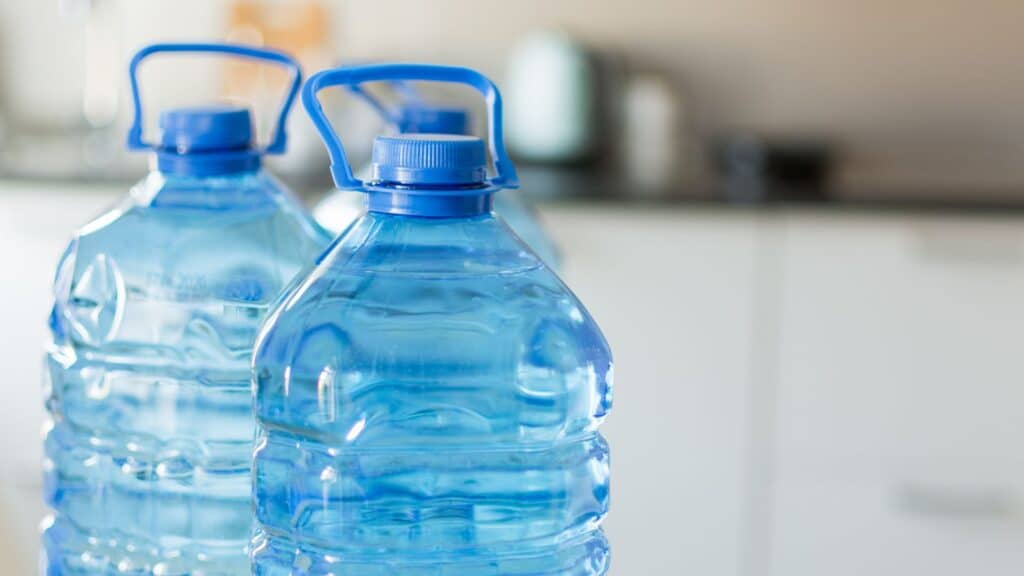
When to Replace Baby Water
Maintaining the freshness and safety of baby water is crucial to ensure that it remains suitable for consumption. Replacing baby water at the appropriate intervals can help prevent the growth of bacteria and other contaminants, which could pose risks to your baby’s health.
How often baby water should be replaced depends on several factors, including the type of container, storage conditions, and whether or not it has been opened.
Unopened baby water: Generally, unopened bottles of baby water have a long shelf life and can be stored for up to two years. Check the expiration date printed on the bottle to ensure its freshness. Keep the bottles in a cool, dry, and dark place away from direct sunlight or heat sources to prevent any deterioration in quality.
Opened baby water: Once the baby water bottle has been opened, it is exposed to air, which can introduce contaminants or promote bacterial growth. As a precaution, it is advised to replace opened baby water within 24 to 48 hours. Remember to always use a clean and sterilized bottle when preparing baby water for consumption.
Signs That Baby Water Should Be Discarded and Replaced Include:
Cloudiness or discoloration: If the baby water appears cloudy, has particles floating in it, or shows any discoloration, it is a sign that the water may be contaminated and should be discarded.
Unusual odor or taste: If the baby water develops an off-putting smell or taste, it is an indication that the water is no longer fresh, and it is time to replace it.
Damaged or leaking container: If the baby water container is damaged, cracked, or leaking, it is best to discard the water and replace it with a new bottle to ensure safety and prevent contamination.
Expired water: Always check the expiration date on the baby water bottle. If the water is past its expiration date, discard it and replace it with a fresh bottle.
Remember, it is always better to err on the side of caution when it comes to the health and safety of your baby. When in doubt, discard the baby water and replace it with a fresh bottle to ensure optimal freshness and safety.
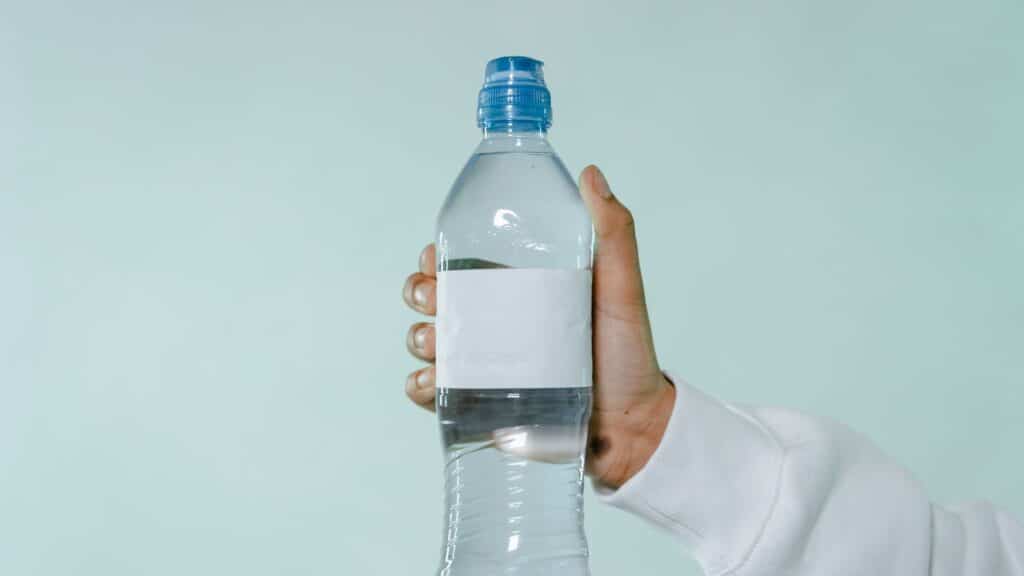
Essential Hygiene Practices for Preparing Baby Water and Food
When preparing baby water, it is essential to follow proper hygiene practices, such as washing your hands and sterilizing the bottle and nipple before use. Additionally, make sure that any utensils, such as measuring cups or spoons, used to prepare the water are clean and sanitized.
It is worth noting that baby water is not the same as regular bottled water or tap water. It is specifically formulated for infants and does not contain any added minerals or fluoride, which can be harmful to babies.
Also, when introducing your baby to solid foods, be sure to offer a variety of options, including pureed fruits and vegetables, baby cereals, and baby foods. If you are using store-expressed breast milk or thawed breast milk to prepare baby food, make sure to follow proper breast milk storage and handling guidelines to maintain its freshness and safety.
If you are using formula to feed your baby, always follow the instructions on the package carefully. This includes the correct amount of water and powder to use and the appropriate temperature to serve it. Do not heat formula in the microwave as it can cause hot spots and burn your baby’s mouth.
When it comes to frozen foods, make sure to store them at the appropriate temperature and follow the recommended thawing instructions before feeding them to your baby. Always check the expiration date on frozen food and discard any items that have passed their expiry date.
Proper preparation, storage, and handling of baby water, including baby foods, are crucial to ensure the health and safety of your little one. When in doubt, always err on the side of caution and replace any questionable items with fresh ones.
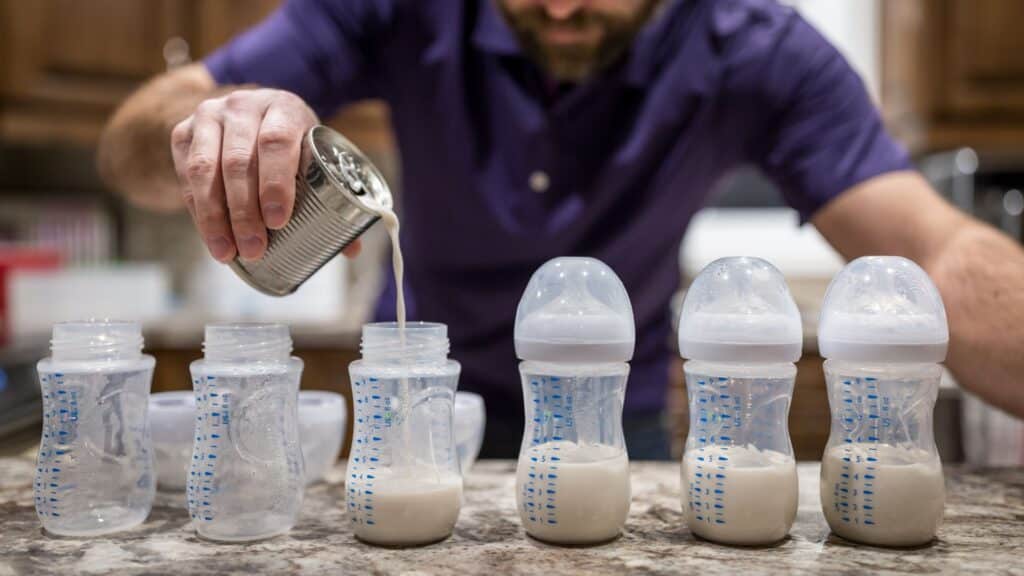
Tips for Traveling with Baby Water:
When traveling with a baby, it’s important to ensure that they stay hydrated, and that means bringing along enough baby water. Here are some helpful tips to ensure that your baby’s water remains fresh and safe during transit:
Use sterile bottles: Before filling the bottles with baby water, make sure that they are sterile. You can do this by boiling them in water for 5-10 minutes or using a sterilizing solution.
Use pre-packaged baby water: When traveling, it’s best to use pre-packaged baby water rather than tap water. Pre-packaged water is specifically formulated for infants and is free from contaminants.
Keep the water at the right temperature: Babies prefer their water at room temperature, so make sure that you store the bottles in an insulated bag to keep them at the right temperature. Avoid exposing the bottles to direct sunlight, as this can cause the water to become too warm.
Bring enough water: It’s important to bring enough water for the entire trip, as you may not always have access to clean water. A good rule of thumb is to bring one liter of water per day for your baby.
Check the expiration date: Always check the expiration date of the baby water before purchasing it. You don’t want to end up with expired water that could potentially make your baby sick.
Keep the bottles clean: It’s important to keep the bottles clean during transit, especially if you’re traveling to a place with poor sanitation. Make sure to wash the bottles thoroughly with warm, soapy water, and rinse them well.
Consider a water filtration system: If you’re traveling to a place where clean water is not readily available, consider bringing a portable water filtration system. This can help ensure that the water you give to your baby is safe to drink.
By following these tips, you can ensure that your baby’s water remains fresh and safe during transit, and that your little one stays hydrated and healthy throughout your trip.
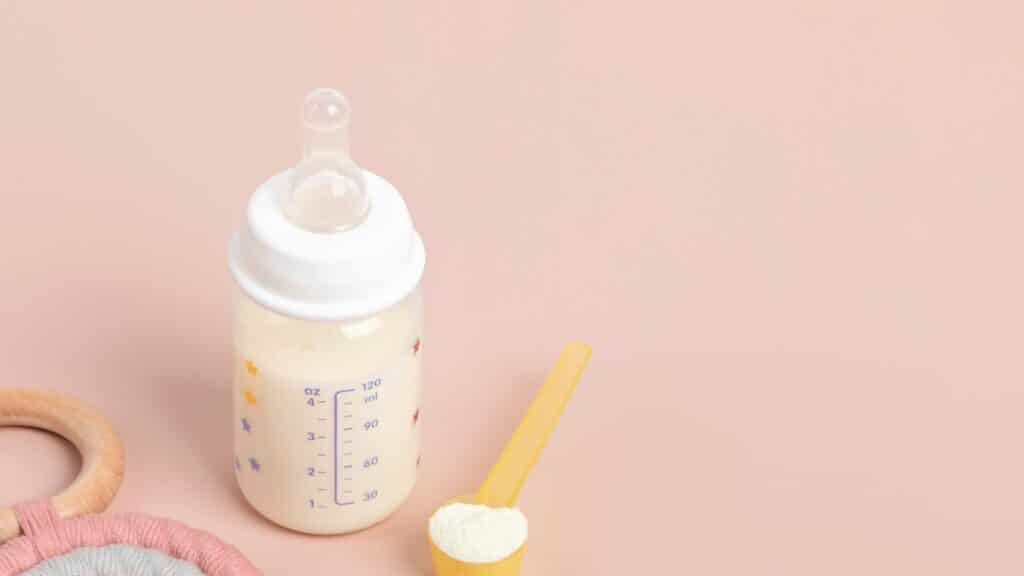
Alternative Methods for Baby Water Storage:
When it comes to storing water for your baby, ensuring its safety and hygiene is of utmost importance. Traditionally, water has been stored in bottles or containers after being boiled or purchased as purified water from stores. However, there are alternative methods for storing baby water that can be just as effective, if not more so. In this article, we will discuss alternative methods for storing baby water, such as using a water purifier or boiling water, and compare their effectiveness to traditional storage techniques.
Water Purifiers
Water purifiers are an increasingly popular option for ensuring safe drinking water for babies. These devices filter tap water to remove impurities, chemicals, and contaminants. Some water purifiers also have UV light technology that kills bacteria, viruses, and other microorganisms, providing an added layer of protection.
Pros:
- Provides a continuous supply of purified water.
- Removes impurities and contaminants.
- Can be more cost-effective than purchasing bottled water.
- Environmentally friendly as it reduces plastic waste from bottled water.
Cons:
- Requires regular maintenance and filter replacements.
- Initial investment can be expensive.
- May not remove all types of contaminants.
Boiling Water
Boiling water is a traditional method of ensuring safe drinking water for babies. By boiling tap water, you can kill bacteria, viruses, and other microorganisms that may be harmful to your baby.
Pros:
- Simple and cost-effective method.
- Kills microorganisms, making water safe for consumption.
- No additional equipment required.
Cons:
- Time-consuming process as water must be boiled, cooled, and stored.
- Boiled water loses its freshness over time and must be used within a specific timeframe.
- Requires constant vigilance to ensure water does not become contaminated again after boiling.
Comparing Effectiveness
Both water purifiers and boiling water offer distinct advantages and disadvantages when it comes to storing baby water. Water purifiers provide a continuous supply of purified water, which can be more convenient and environmentally friendly than boiling water. They also remove impurities and contaminants that boiling may not eliminate. However, water purifiers can be expensive initially, and they require regular maintenance and filter replacements.
On the other hand, boiling water is a simple, cost-effective method that kills microorganisms, ensuring safe drinking water for your baby. However, it can be a time-consuming process, and the water must be consumed within a specific timeframe to maintain its freshness.
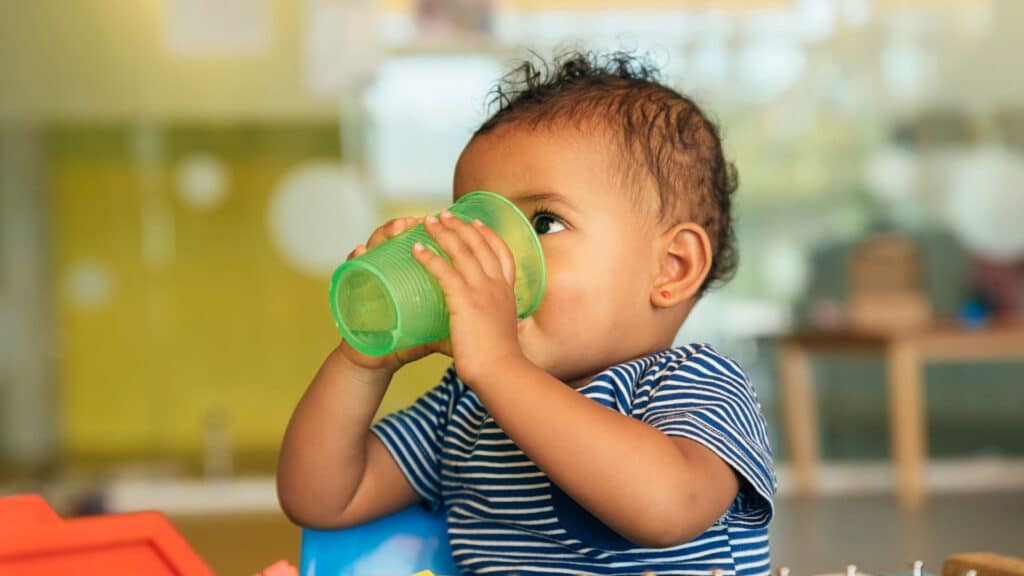
Conclusion:
In conclusion, proper storage of baby water is essential for maintaining its safety, quality, and freshness. Baby water is designed to meet the sensitive needs of infants, and its contamination can cause severe health risks, especially for infants with underdeveloped immune systems.
Proper storage can help prevent bacterial growth, chemical contamination, and maintain the freshness and taste of the water. Clean, airtight containers made of food-grade materials like BPA-free plastic or glass should be used to store the baby water in a cool, dark place away from strong-smelling substances.
It is also crucial to label and date the containers to keep track of their age and replace them periodically. By following these essential tips and precautions, parents and caregivers can provide their babies with clean and safe water to drink.
Do you have any questions? Please leave a comment below.

